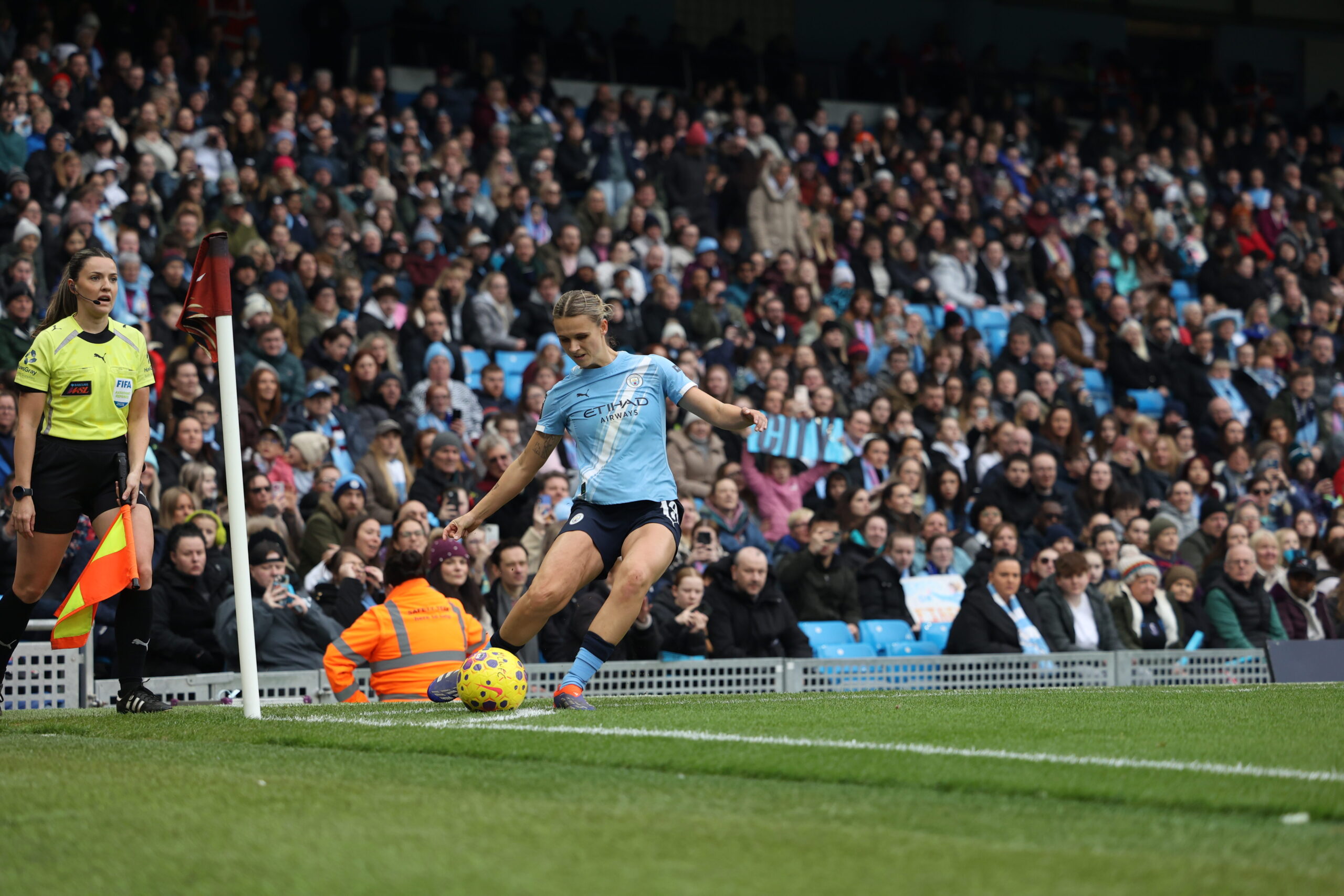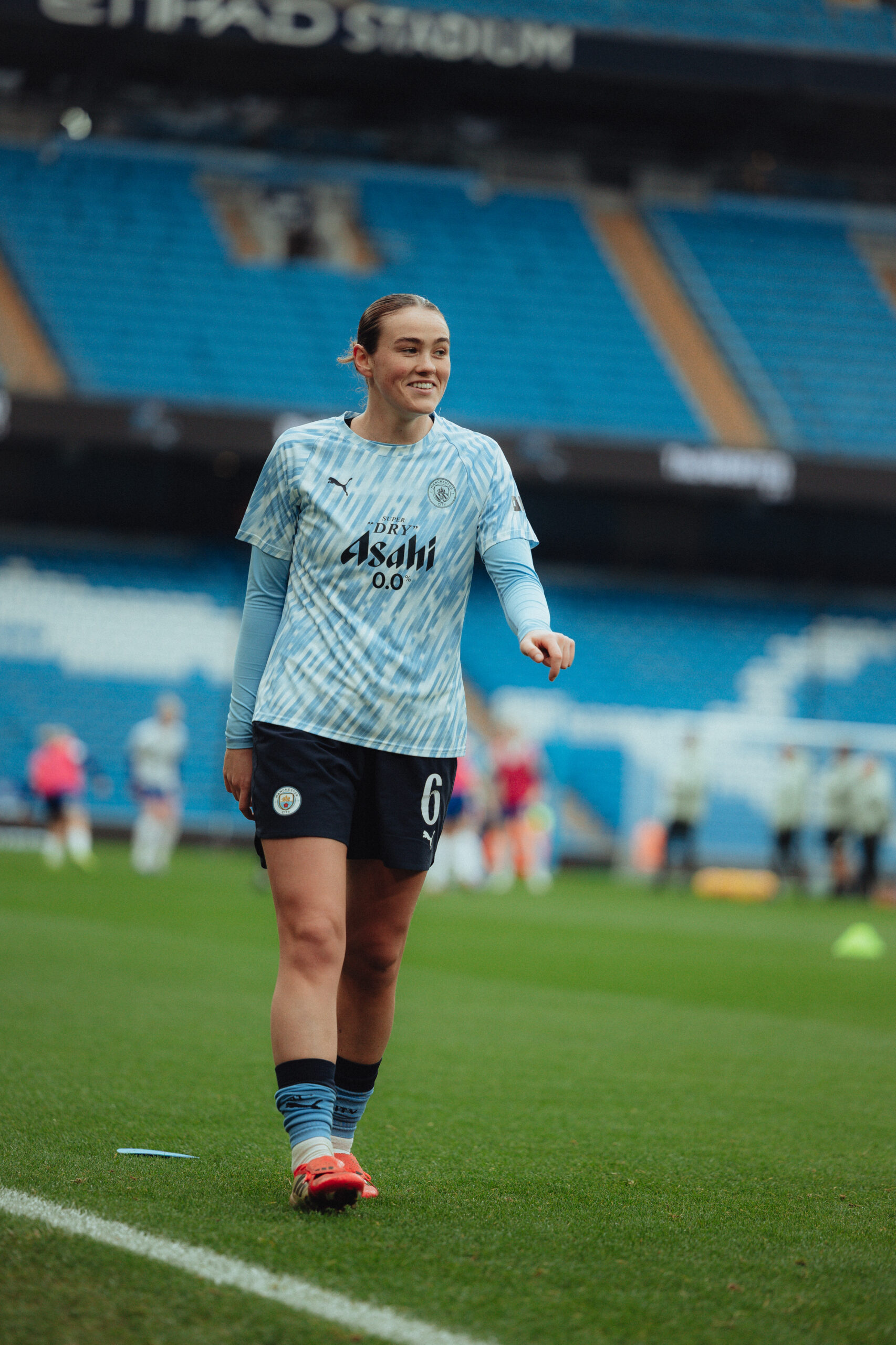The book chronicles the often-nomadic lifestyle of women in professional football. This set of circumstances is no secret to Cloepfil who played for six teams in six countries, traveling to countries such as Australia, Korea and Lithuania to pursue the dream of a career as a professional athlete.
Cloepfil, who now teaches and coaches at Whitman College, wrestles with the all too familiar idea that chasing your dreams will subsequently cause significant discomfort, both physically and mentally.
In a conversation over Zoom, Cloepfil reflects on the creative process, the progression of women’s football and her current coaching and writing career.
Joe Rosedon: How would you describe The Striker and the Clock and how did it come about?
Georgia Cloepfil: It’s a sort of memoir of my experiences playing professional soccer in Europe, Australia and Asia. It’s broken into 90 small sections; each one is a minute of a game clock. I wrote it by taking notes whilst I was playing. I always loved writing but didn’t really know how to have the discipline.
Then afterwards I revisited what I had written and these big themes started to surface that I was really interested in beyond just soccer such as mortality, gender, bodies, pain, ambition and endings. I love sport and books but I don’t have a huge list of books about sports that really speak to me as a full person.
It’s not a traditional memoir, it moves back and forth in time. It has a sort of chronological arc in that it starts in this sense of beginning and it ends with a sense of ending, but it moves around in time.
JR: The book is clearly a love letter to football but I also found the book to be somewhat melancholic. Would it be accurate to say that football caused you pain and stress?
GC: I wanted a little bit of the loneliness, tedium and pain and things that people don’t see when we watch sports. Obviously, the only reason I kept playing was because I loved it and love thinking about the feeling of scoring goals, it’s the best feeling in the world. But it’s much harder to write about joy than suffering.
JR: How to do you contemplate that contradiction between your love for football and the amount it has taken out of you?
GC: It’s a really big question that goes beyond soccer. I feel like writing is a really similar practise. It also involves a lot of suffering. You’re sitting at your desk and it’s not coming very easily but you have to love it to keep going because it’s not going to make you a million dollars.
Also, trusting yourself and knowing the reasons why you’re in it even though it is very hard in a capitalist society to do anything for just love and we have to play into the market. Those things are true about writing and soccer.
JR: For some people there is this idea that the life of a professional athlete is one of glamour and your book captures the more realistic side of that lifestyle. Why is it important to tell those stories?
GC: Well, the obvious answer is just that they are not told as much as the ones by people who have had a lot of success. I think the majority of athletes, even at a professional level, have had experiences like mine. We’re already in the one percent and only the one percent of the one percent have a life of somewhat luxury.
There’s still a lot of people scrapping by, taking weird contracts in countries where they don’t really want to live. I think it is important to understand that it is part of the experience but that is the more interesting part of it. All of this hardship and struggle. I still want it but I’m not going to get it. How do I adjust to not having had this in my life after wanting it for so long?
JR: In the book, you mention having conversations with teachers as to whether to prioritise football or to purse a more academic route. Now as teacher and as a coach, what would be your response if one of your students posed that same question to you?
GC: So, one of my teachers said sports don’t really matter and go read books while another said this is your only chance. I think I would side with the latter. There’s such a limited time. I do have this conversation with players on pitch rather than in the classroom.
I would always encourage them to try because they are so young and the window for soccer and for living a life of such precocity is very small.
JR: Is there a different mentality to playing football and coaching football?
GC: Oh Yeah! I’m an assistant coach and even that’s I think is different from being a head coach. I don’t get nervous. I feel much more detached. I am there to support them and to be supportive no matter what. When I was young, it was in at all costs. It’s a much more emotionally position to be in for me and I think that’s healthy.
There’s little highs and little lows and you’re really happy for the girls and you’re happy for the program you’re building, but it’s much less extreme.
JR: After your retirement in 2019, what are your thoughts on the changes in women’s football between then and now?
GC: Oh, I mean, it’s always growing. My whole life it’s been growing. It is so cool, especially globally. The United States has always been on sort of like the cutting edge because of college. And now I think everyone’s sort of caught up and moving beyond and the leagues in England, for example, are so strong and attracting so many people.
JR: Bearing in mind that aforementioned growth, do you ever regret that your career came at the wrong time?
GC: I don’t and I’m thankful that I don’t. One, there’s no controlling these things and then it’s like, oh, I’m so thankful I came now and not 20 years before, so there’s always a bit of perspective and I think you’re happy when things are better. When you are part of a movement and part of a sport that’s better after you stop, that is a really positive thing.
JR: Obviously writing is a creative pursuit but I believe football is too. Does that creativity come from the same place or are they separate entities?
GC: I think when I was growing up and playing it felt really separate. Not a lot of my teammates liked to read and liked the weird music I listened to while not a lot my friends at school loved sports with the same fervour that I did.
Now as an adult, the discipline is the thing that comes to mind. Things such as resilience through rejection, commitment and belief in yourself, no matter what, those qualities really help me keep writing. Those directly come from soccer and specifically my career playing overseas.
Creatively, it feels quite different because you’re so in your head writing. I actually think it was probably prohibitive for me playing, that I was often so in my head narrativising sort of what was happening, whereas on the field you’re supposed to sort of draw a blankness. Those are the moments of like pure joy. I had a lot of those too, but I think the tendency to narrate is not a helpful one when you’re a professional athlete.
Everyone at Beyond The Pitch would like to express their gratitude to Georgia for her time and sharing her personal experiences.
The Striker and the Clock is now available via Bloomsbury in the UK and Riverhead Books in the US.
Photo: https://www.georgiacloepfil.com/about



